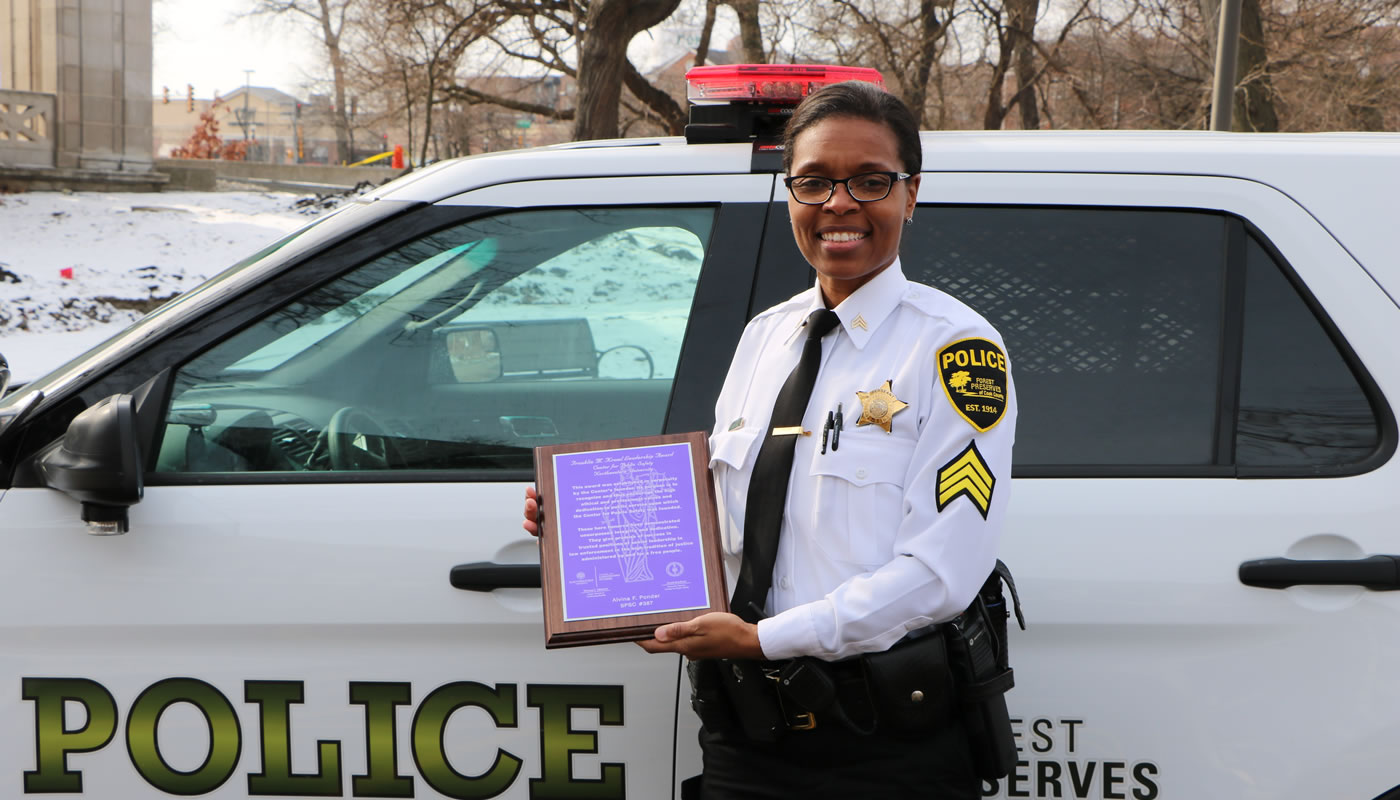As with any workplace, investing in employees is essential to the overall success of the organization. That’s why the Forest Preserves of Cook County Law Enforcement Department selected Sgt. Alvina Ponder as their first student to enroll in the Northwestern University Center for Public Safety‘s School of Police Staff and Command course.
The rigorous 10-week program helps prepare ambitious law enforcement managers for career advancement by teaching academic policing principles with practical applications.
“(The program) was a very fortunate experience, it was enlightening. But not to sugar coat it, it was also stressful, it was frustrating,” explained Sgt. Ponder. “You have to be a very active listener and active participant. It was an honor, and I enjoyed the entire process.”
With two master’s degrees—one in counseling and organizational psychology and another in conflict resolution—Sgt. Ponder is no stranger to hard work. When Sgt. Ponder walked in to the classroom each day, she gave it her all; she felt like she was just being herself. And from a young age, empathy and compassion were instilled in her by her mother.
But despite the her past accomplishments and sense of compassion for others, she was still surprised when she learned she would receive the Franklin M. Kreml Leadership Award, given to the student who “best displays the dedication, devotion, ethics, sense of justice and other attributes that exemplify the kind of leadership that is needed in today’s law enforcement community.”
“Recognizing when some is in need, being there for comrades, to me, those are just natural instincts. I think that is why my class voted for me. Because they saw that in me,” said Sgt. Ponder.
Moving forward, Forest Preserves Police Chief John Roberts hopes to send two sergeants through the program each year to supplement the training officers already receive. The program will help the department continue to improve management, leadership and supervision.
“We have a lot of talented officers on the Forest Preserves Police Department. We have to build a career ladder and show them the path, and show them that any one of them could become the chief,” explained Chief Roberts. “There has to be a perception among our officers that they can work their way up to the top. But it’s not enough to just say it, we have to support it.”

